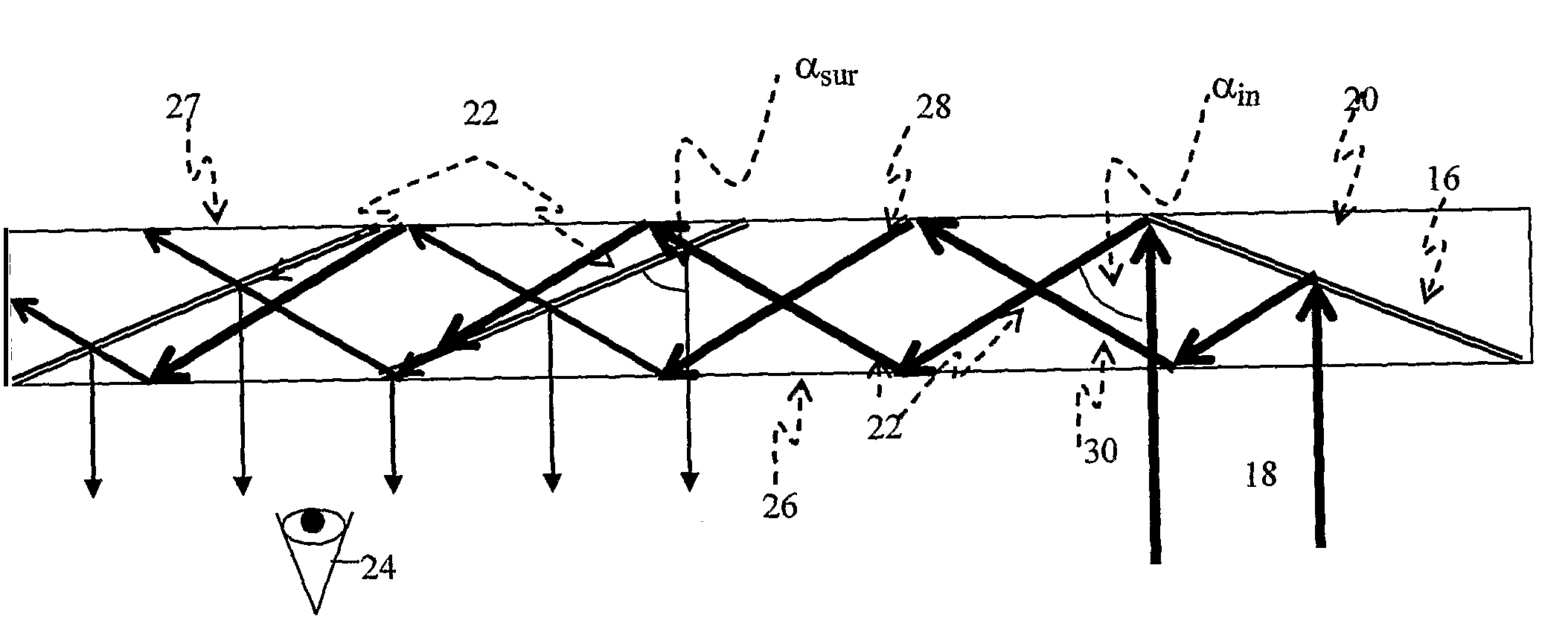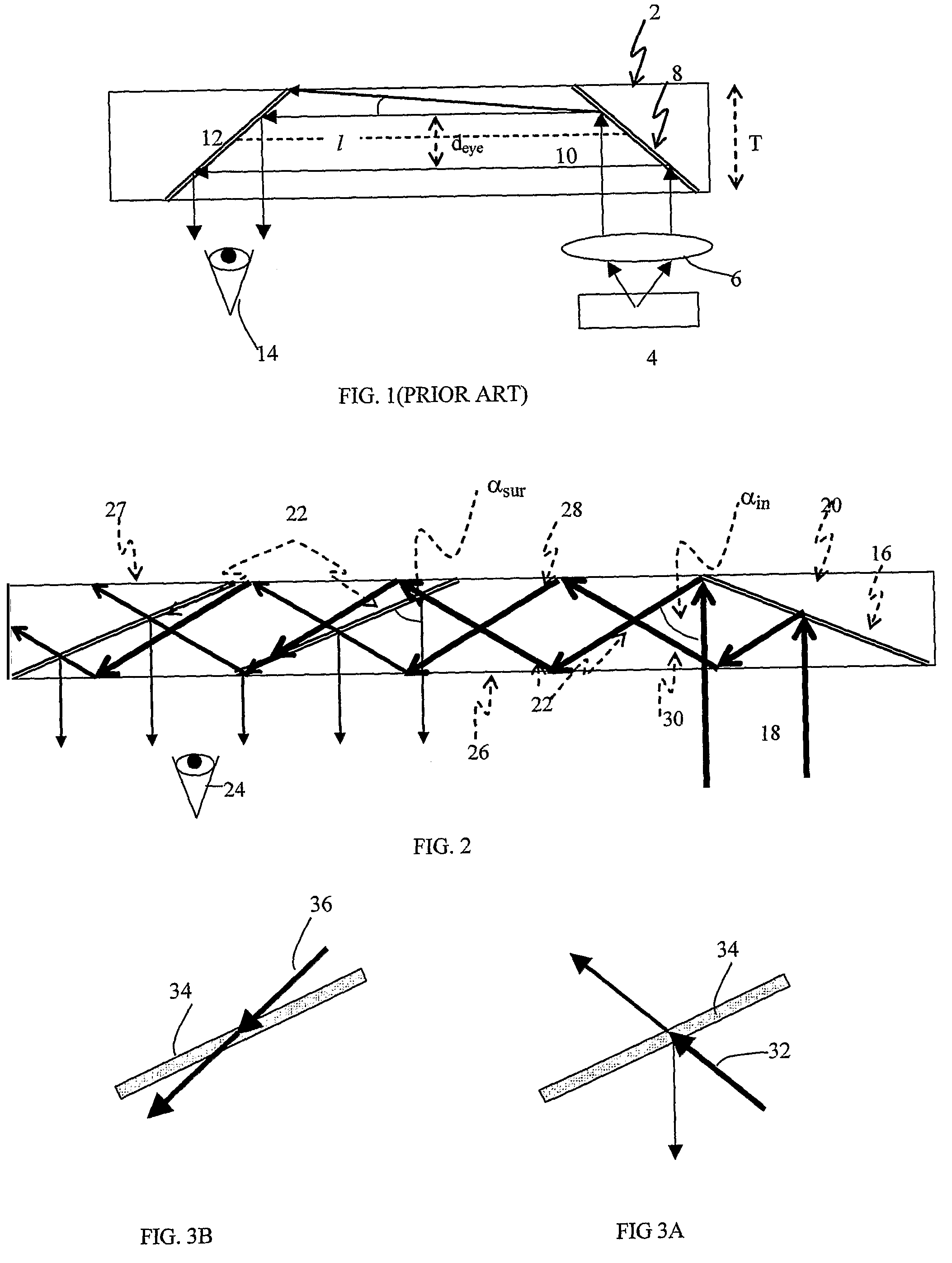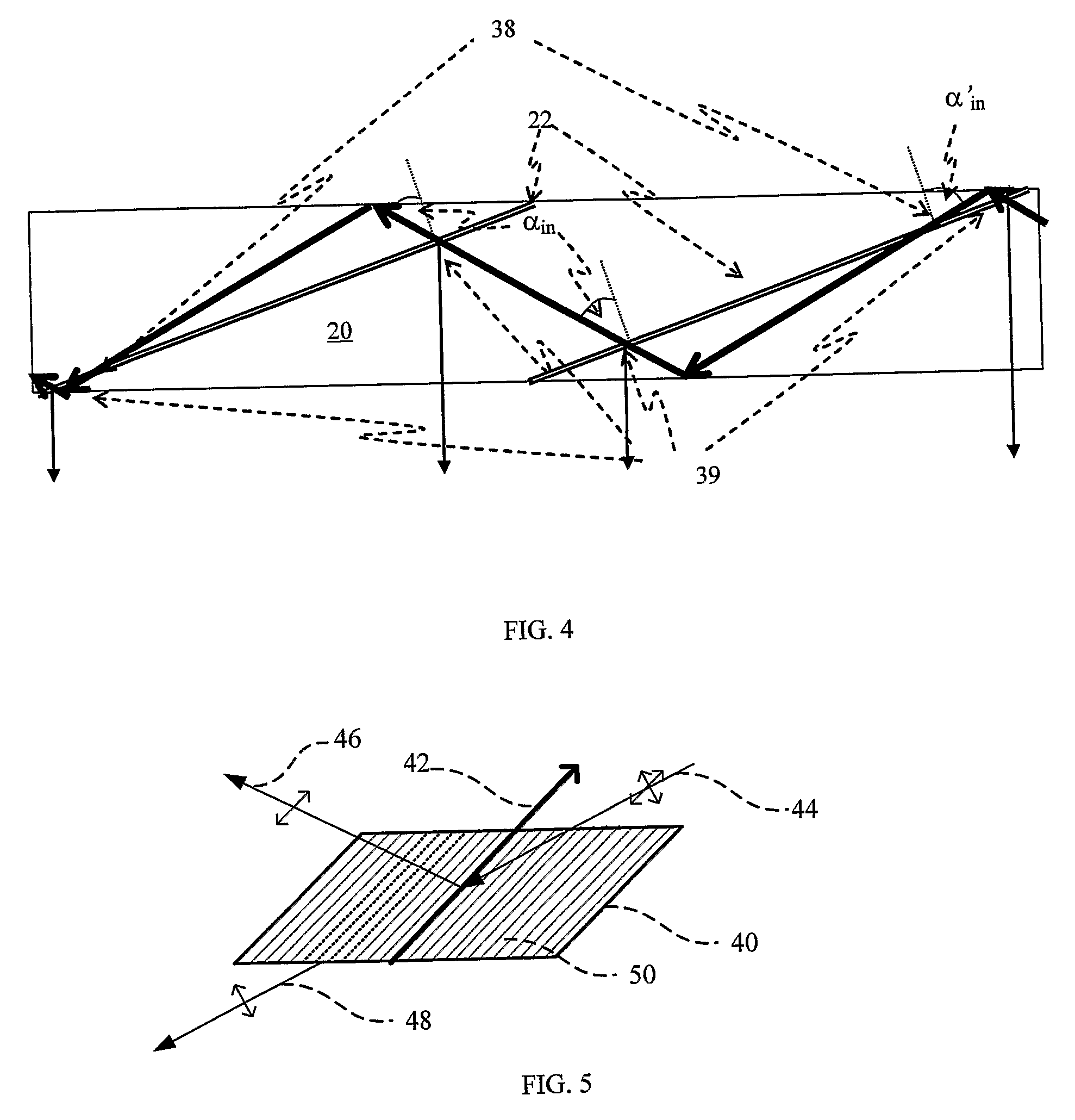Substrate-guided optical device utilizing thin transparent layer
a technology of optical devices and transparent layers, applied in the field of substrate-guided optical devices, can solve the problems of inconvenient installation, unsafe use, and state-of-the-art huds, and achieve the effects of convenient integration, large eye-motion-box values, and convenient design and fabrication
- Summary
- Abstract
- Description
- Claims
- Application Information
AI Technical Summary
Benefits of technology
Problems solved by technology
Method used
Image
Examples
Embodiment Construction
[0039]FIG. 1 illustrates a prior art folding optics arrangement, wherein the substrate 2 is illuminated by a display source 4. The display is collimated by a collimating lens 6. The light from the display source 4 is coupled into substrate 2 by a first reflecting surface 8, in such a way that the main ray 10 is parallel to the substrate plane. A second reflecting surface 12 couples the light out of the substrate and into the eye 14 of a viewer. Despite the compactness of this configuration, it suffers significant drawbacks; in particular only a very limited FOV can be affected. As shown in FIG. 1, the maximum allowed off-axis angle inside the substrate is:
[0040]αmax=arctan(T-deye2l),(1)
wherein T is the substrate thickness;
[0041]deye is the desired exit-pupil diameter, and
[0042]l is the distance between reflecting surfaces 8 and 12.
[0043]With angles higher than αmax the rays are reflected from the substrate surface before arriving at the reflecting surface 12. Hence, the reflect...
PUM
 Login to View More
Login to View More Abstract
Description
Claims
Application Information
 Login to View More
Login to View More - R&D
- Intellectual Property
- Life Sciences
- Materials
- Tech Scout
- Unparalleled Data Quality
- Higher Quality Content
- 60% Fewer Hallucinations
Browse by: Latest US Patents, China's latest patents, Technical Efficacy Thesaurus, Application Domain, Technology Topic, Popular Technical Reports.
© 2025 PatSnap. All rights reserved.Legal|Privacy policy|Modern Slavery Act Transparency Statement|Sitemap|About US| Contact US: help@patsnap.com



